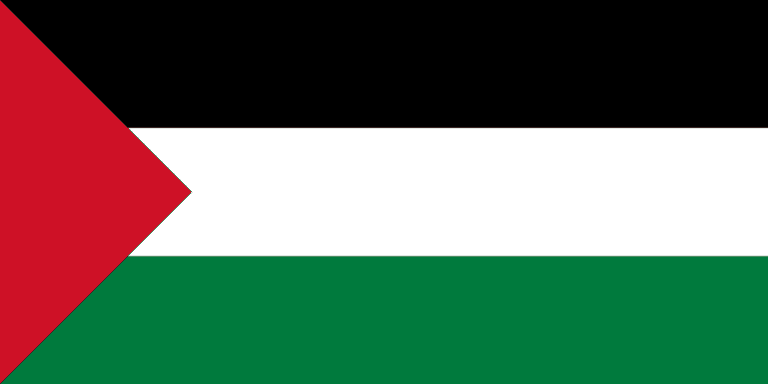
What Happened?
The US cut funding to UNRWA, the United Nations Relief and Works Agency for Palestine Refugees in the Near East. The US has been giving UNRWA about $350 million per year until January 2018, when it gave $60 million; as of August 2018, it cut funding completely.
UNRWA was established in 1949 to provide aid to Palestinians who left or were driven out of the land when Israel achieved independence in 1948 or when Israel defeated the surrounding Arab armies in 1967. UNRWA is unique in that it is the only UN refugee committee to focus on a specific body of people; other refugees around the world all fall under the broader UNHCR, United Nations High Commissioner for Refugees. Additionally, while UNHCR recognizes refugees themselves as such, it encourages their descendents to integrate into their host countries and they do not have refugee status; UNRWA extends refugee status to Palestinian refugees’ descendents as well.
The US state department explained this decision: “[T]he fundamental business model and fiscal practices that have marked UNRWA for years– tied to UNRWA’s endlessly and exponentially expanding community of entitled beneficiaries– is simply unsustainable and has been in crisis mode for many years. The United States will no longer commit further funding to this irredeemably flawed operation.” Israeli Prime Minister Benjamin Netanyahu endorsed this decision: “[T]he U.S. did a very important thing, by cutting funding to an agency that immortalizes refugees. [The UN] created a unique institution, 70 years ago, not to absorb the refugees but to perpetuate them. Therefore, the U.S. has done a very important thing by halting the financing for the refugee perpetuation agency known as UNRWA.”
Husam Zomlot, Palestinian Authority envoy to Washington, expressed: “It’s not up to the US administration to define the status of Palestinian refugees. By endorsing the most extreme Israeli narrative on all issues including the rights of more than 5 million Palestinian refugees, the US administration has lost its status as peacemaker and is damaging not only an already volatile situation but the prospects for future peace in the Middle East.” And quoted in The Atlantic, Michael Koplow, the policy director at the Israel Policy Forum, appeared concerned about such a move as well, questioning whether changing the definition of who is a Palestinian refugee “will settle the issue in the context of negotiations.” Rather, Koplow continued, “It is hard to see how it will advance the peace process by even an inch rather than making a permanent status negotiation more difficult… The only real effect the Trump administration’s reported plan is going to have will be to further convince the Palestinians that the U.S. should not be mediating between the two sides and extend their current boycott of the administration.”
Diversity of Perspectives within Israel
On the one hand, many Israeli leaders are happy about this, as it sends a message from America that Palestinian leadership is not using its money properly. A senior IDF officer told the Jerusalem Post that “The Americans are very smart… putting pressure on all the right places.” However, this same officer expressed concern over the halted funding: “The aid being stopped is a big blow to Palestinians. We are concerned that if the schools aren’t funded, the youth will go out and carry out attacks.” Haaretz reported security concerns as well: “Israeli defense officials agreed in a meeting last week that the government must develop an alternative to the United Nations Relief and Works Agency in the Gaza Strip in order to head off a humanitarian disaster in light of the U.S. commitment to defunding the agency.” Times of Israel quoted Jerusalem Mayor Nir Barkat, who has a very direct take on this all: “Removing UNRWA will reduce the incitement and terror, will improve the services to residents, will increase the Israelization of the east of the city, and will contribute to the sovereignty and unity of Jerusalem. UNRWA is a foreign and unnecessary entity that has failed utterly, and I intend to remove it from Jerusalem. [T]he sanitation under their responsibility is deteriorating, their welfare services offer no hope to residents and the satisfaction with them is very low.”
Why Does This Matter?
- Palestinian-Israeli conflict: A significant factor in dealing with UNRWA is the question of refugee status. UNRWA attributes refugee status to not only refugees, but their descendants, totaling over 5 million Palestinians. This would mean that they would potentially move to Israel under certain peace negotiations. Yet Israel and America have never agreed to what is called “the right of return,” and Israel views only the original refugees as refugees (closer to 500,000). If the number were 5 million, it would dramatically challenge Israel’s Jewish and democratic character. UNRWA’s policy of counting Palestinians descendants is unique and curious, as the world’s other refugees are not considered refugees if they have citizenship from another country. This is the opinion of Jay Sekulow, President Trump’s counsel, in Foreign Policy, saying, “There is no provision for refugee status based on descent in the 1951 refugee convention or in internationally accepted practices for refugees who are not Palestinian refugees.”
- US as regional mediator: The Palestinian Authority (PA) is extremely upset with America for cutting funds. Palestinian anger with America and distrust of its leadership may be detrimental to moving forward with a peace process, as the US will no longer be considered “objective” as a mediator and is increasingly convincing the Palestinians they should continue to boycott this current administration.
Originally Published Sep 20, 2018 05:17PM EDT
